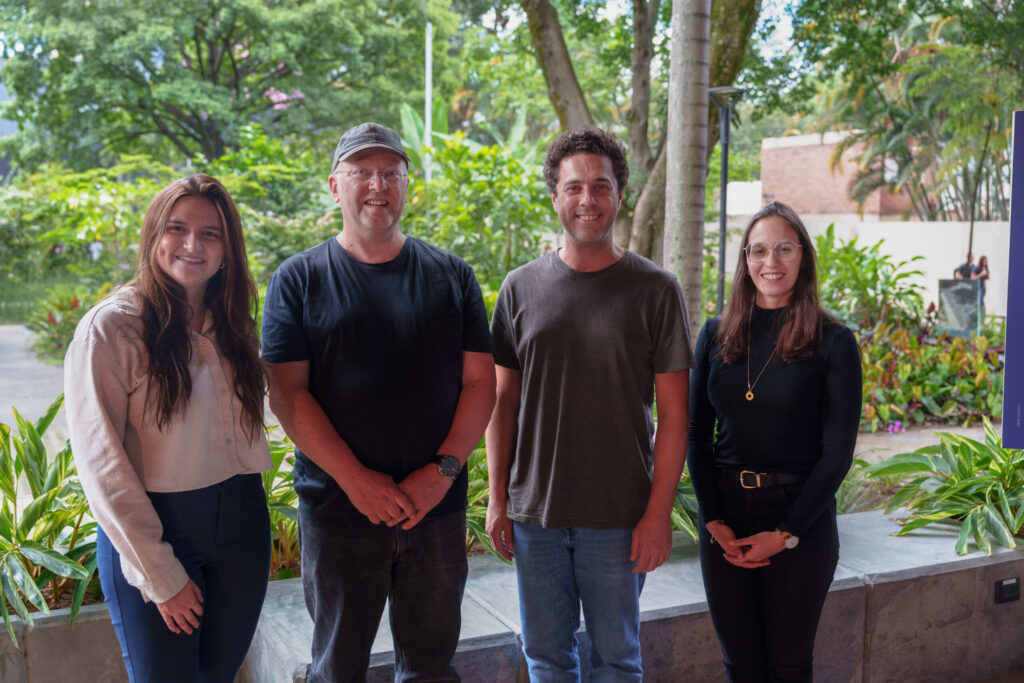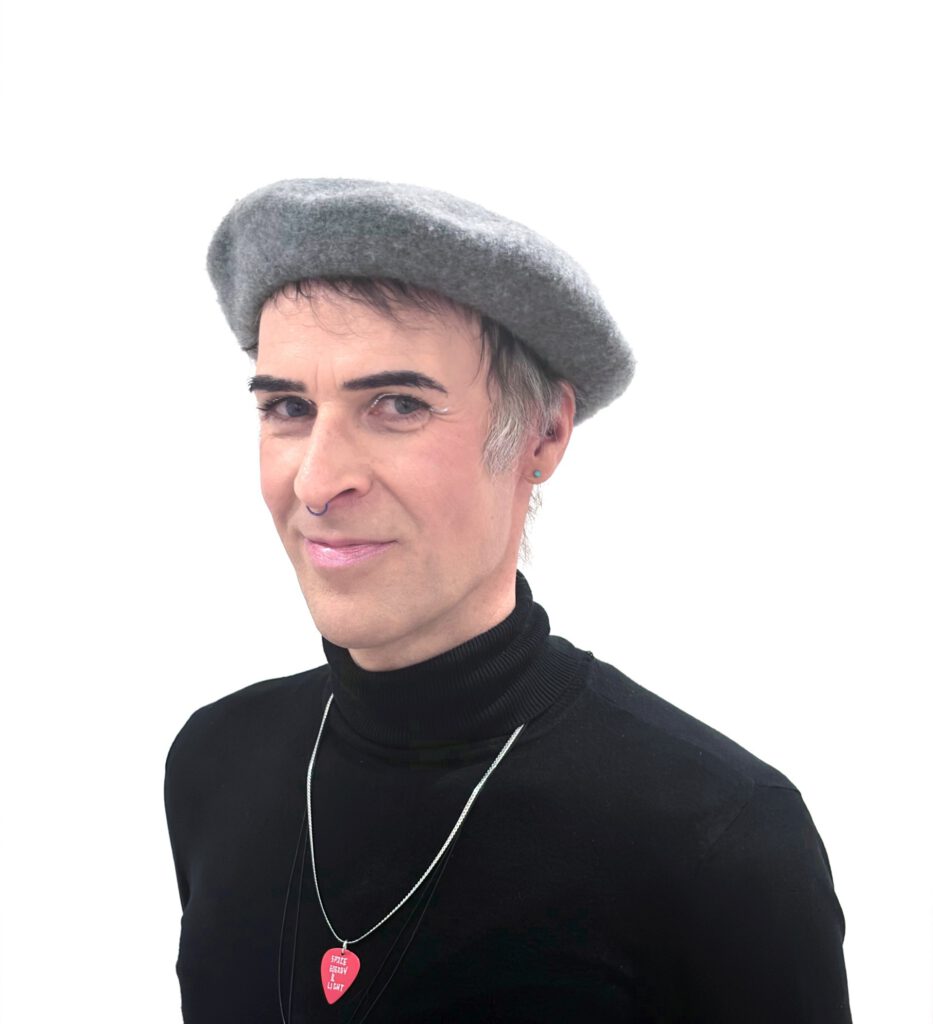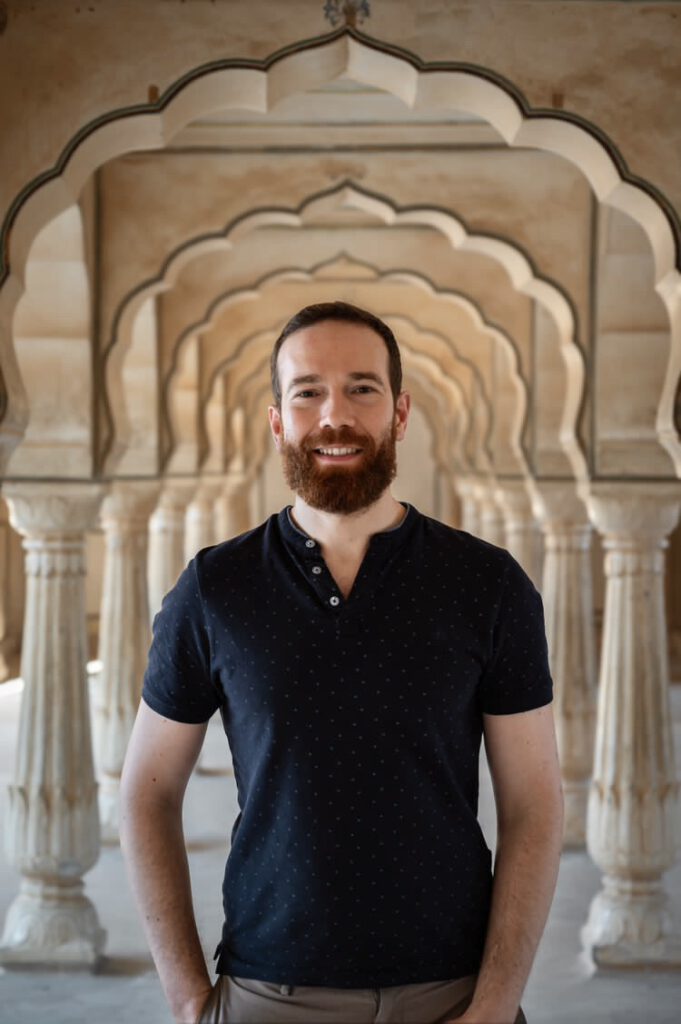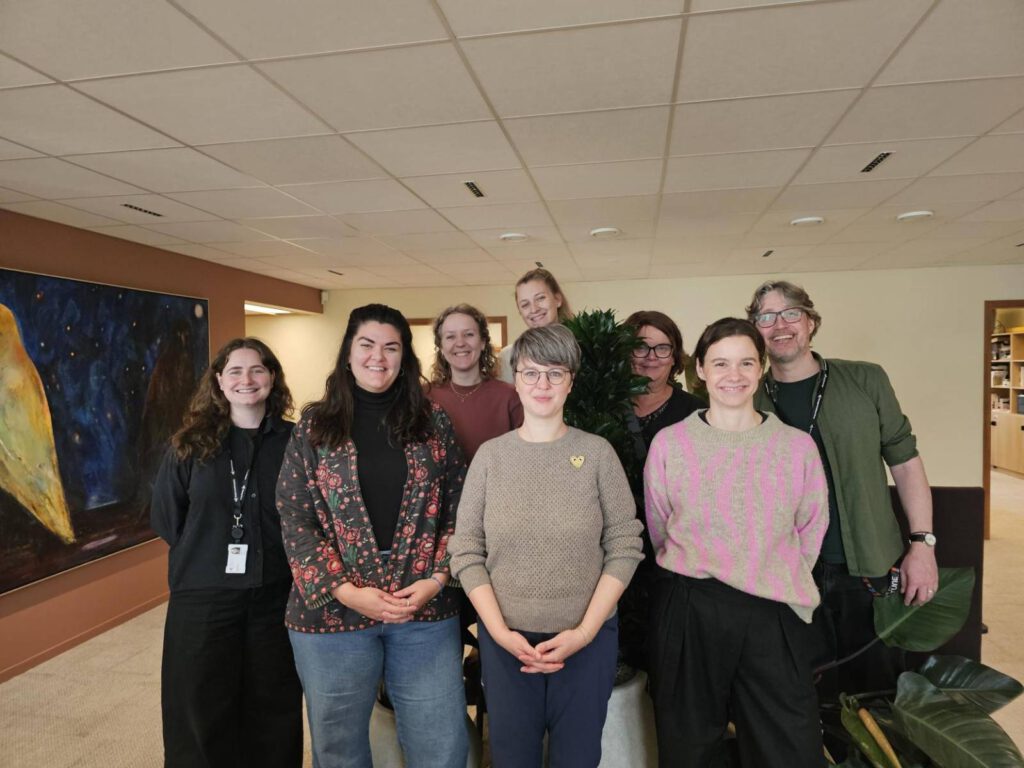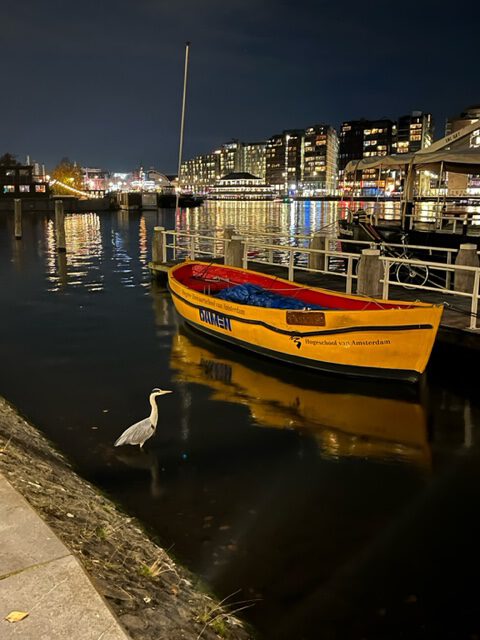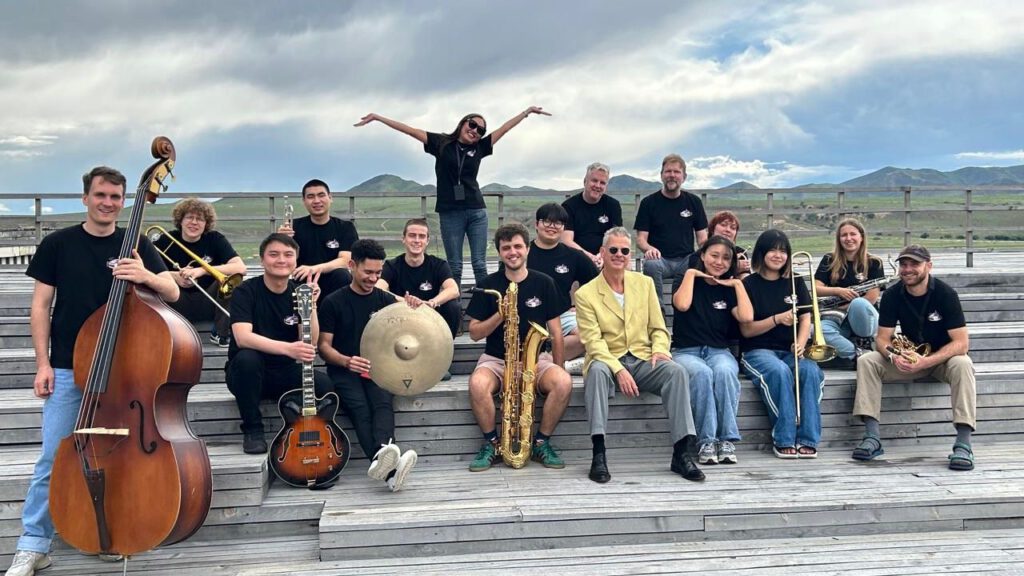The Fascination of Rio de Janeiro
Thirteen and a half adventurous months in the breathtaking “cidade maravilhosa”
“Ever since we met in the student residence in Vienna in autumn 2010, she has been saying that she wants to go to Brazil.”
(Remark by a friend)
How it came about
As the curriculum for Music and Movement Education/Rhythmics is very densely packed each year with all sorts of courses and internships, I didn’t want to go abroad while I was still in the bachelor’s programme so I would not lose a year and could finish with my “class”.
In the master’s programme, which in the 2015 winter semester was extended from one year to two, one had more freedom with regard to the curriculum. Usually, in the first year one finishes the artistic courses, which one completes with a final examination followed by a presentation in the theatre. In the second year, one then has sufficient time to concentrate on writing one’s master’s thesis, and this can easily be combined with time spent studying abroad.
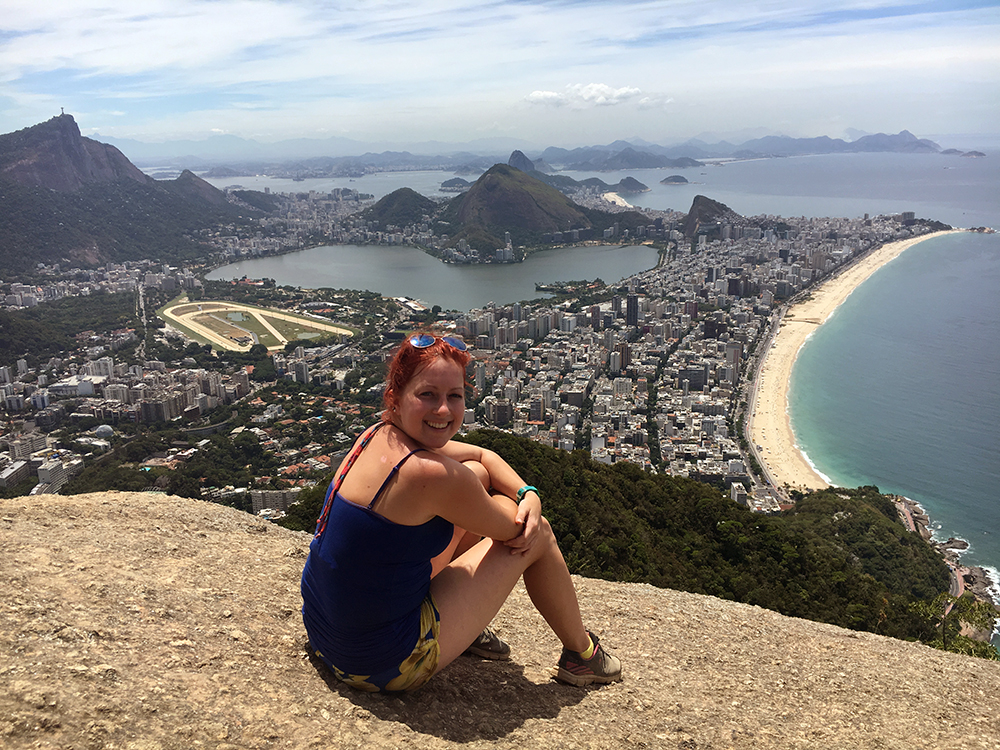
I always knew that I would take advantage of the opportunity to spend a year or semester abroad during my studies. Because South America had interested me even as a child, and because Europe was too close😊, it wasn’t difficult to chooses a continent. My fascination with Brazil became lodged in my brain and would not let me go. I don’t know exactly why, but I never questioned this. I thought: “If my heart longs for this, then it must be the right thing.” The nature, the pleasure the people there take in life, and the music of this country somehow put me under their spell. As I also love working with children, the so-called favelas(slums), with their many social projects, had a magical attraction for me. I had so many dreams and plans that I wanted to realise.
The preparations
I can still clearly recall how I turned up at the Office for International Programme Mobilities a full year and a half before my planned departure and wanted to find out how this sort of exchange works. It was really much too early to arrange anything concrete, but I could no longer keep my anticipation and my thirst for knowledge in check. Although I was so early with my planning, in the final semester before my year abroad, I was still rather stressed with all the bureaucratic details. So, what I want to impress upon everyone is: You can never start too early gathering information!!!
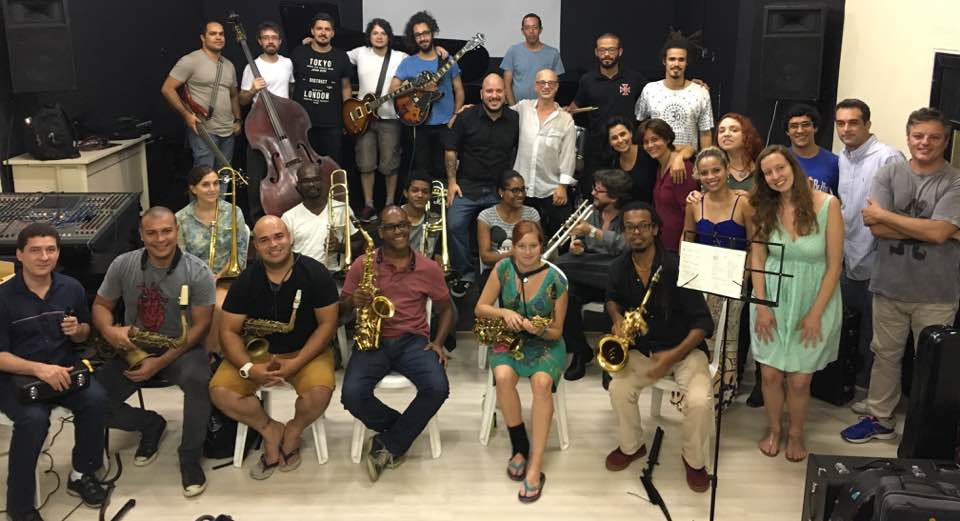
Because Brazil has nothing comparable to Vienna’s Music and Movement Education/Rhythmics course of study, it would have been difficult to transfer any credits (except perhaps modular courses). I decided to complete all my course work in the master’s programme in Vienna in the first year so I could completely devote myself to the year in Rio.
Unfortunately, I received no financial support. Although I applied to the Federal Ministry of Education, Science and Research for a scholarship, this was not granted because I was not able to meet all the necessary requirements. But because I always said that I would embark on my adventure even without a scholarship, I had been saving money for this for quite some time.
Making contacts and finding accommodations
I established my first contacts to teachers at the UNIRIO through Eliana Müller, who had done a semester abroad at the UNIRIO in 2011/2012. It was also through Eliana that the partnership between that university and the mdw became official.
Gabriel, a student from Rio who is now studying at the mdw as well, also gave me a lot of valuable tips. Then I quickly was able to get in contact with Professor Silvia Sobreira, to whom I owe a special debt of thanks. Without her help, many things could have turned out differently. Although she was in the process of writing her dissertation in London, she saw to the bureaucratic details of my semester at the UNIRIO and also kept her eye out for a room for me near the university. Even after my arrival in Rio on 19 July 2016, she continued to look out for me and endeavoured to make my settling-in period as pleasant as possible. She invited me to family gatherings, showed me around the university, introduced me to many students and teachers, and toured me through the city. Her son also helped me with bureaucratic things and took me to some of the city’s exciting places. I am very appreciative of the warm-heartedness and helpfulness that she and her family showed me.
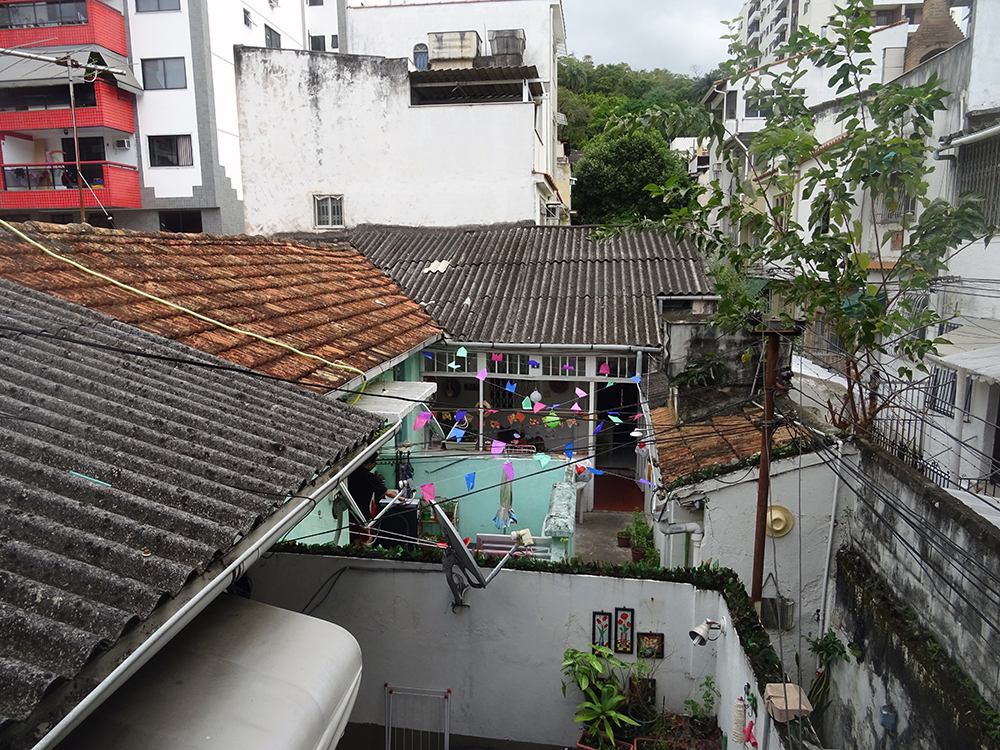
Because she taught “Supervision of the Practicum”, she also provided me with access to a school in which I could realise the research project for my master’s degree. But I am most grateful to her for helping me find a place to stay in Rio. I had planned to rent a small room with a separate entrance, a shower, and a WC in a home a widow shared with her 21-year-old daughter and a dog. So it was not intended for them to act as a host family. But these wonderful people very quickly became a second family for me. I was so warmly welcomed, and I got along with everyone tremendously right from very start. Together with the neighbours, who all lived next to each other there in the so-called “vila” (a kind of small residential street), I spent many weekends socialising and barbequing.
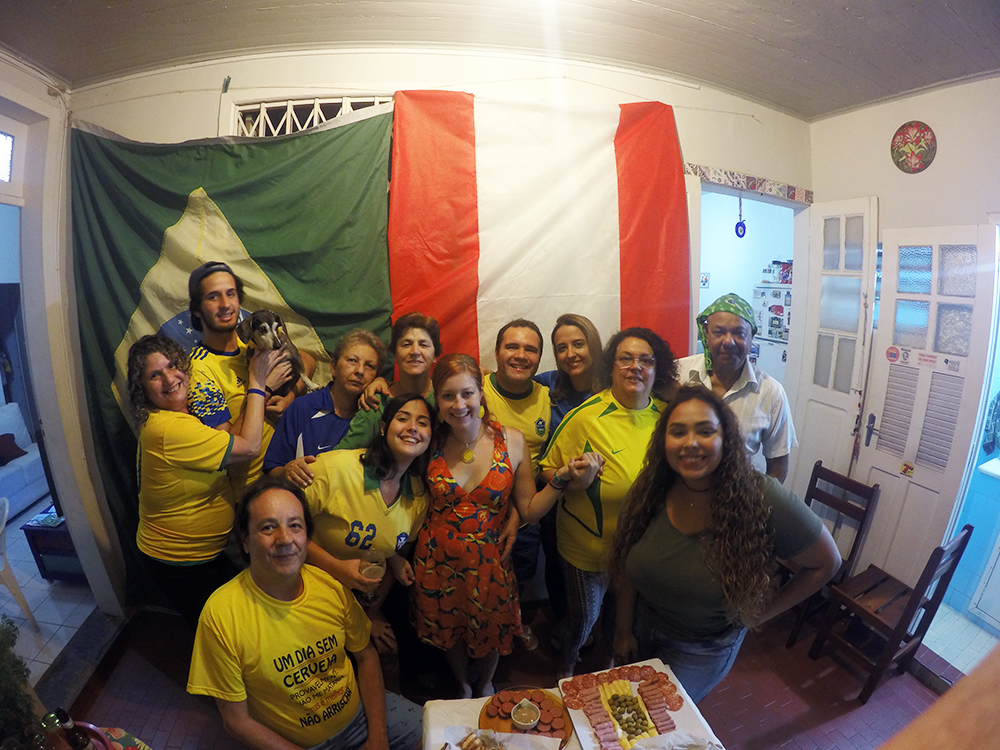
Every day I enjoyed a delicious meal that Hilda, my Brazilian mother, always prepared after work. That was one of the reasons for my weight gain!! In the first few weeks, her daughter Bia, who was 21 at the time, showed me around the area, helped me with shopping, and took me with her when she went out in the evening.
The UNIRIO
The first semester started at the end of August 2016, and I wanted to take full advantage of the course offerings at the university. And I did just that, beginning with big band, an orchestra playing popular Brazilian music, jazz ensemble, bossa-nova ensemble, a music and movement project (which I also still needed for my master’s), and including saxophone and percussion instruction, and supervision of my music practicum at a school. I would describe the standard of the Villa Lobos School of Music at the UNIRIO as high. Many performances and recitals as well as the courses that I attended were all of very good quality and instructive. The only thing I would criticise is the lack of punctuality and reliability that one encounters at the university. I was often annoyed that many students always came to class much too late and sometimes didn’t even apologize. Particularly with orchestra and big band, this created problems with the rehearsal time. But apparently, most of the teachers there don’t see it as a problem. The interaction between students and teachers is basically affectionate, and one is customarily greeted with “Oi! Tudo bem?” (Hi! Everything ok?), a firm hug, and a kiss on both cheeks. The students are also very open. I felt very comfortable at the UNIRIO and always enjoyed going there. I met a huge number of people and made numerous new contacts.
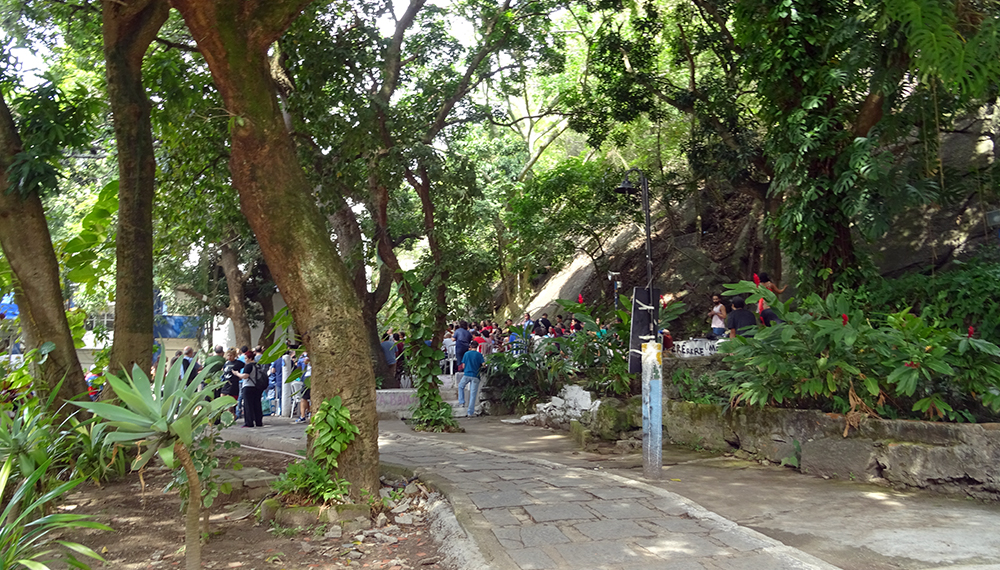
One cannot compare the building itself with our university. The rooms are not in very good condition and are also not well insulated. The toilets don’t flush half the time. Practice rooms are rare, which meant that you could frequently hear someone playing saxophone or violin in the courtyard. But this didn’t really bother me – it actually cheered me up. Despite the deficiencies of the building, I felt very comfortable there because the atmosphere, with the lovely large courtyard, invited one to linger there. What I also loved were the little snacks and sweets that the students made themselves, and which were always on display there and could be purchased very cheaply. An ultramodern, new university building wouldn’t have fit there at all. When I returned to the mdw building on Anton-von-Webern-Platz for the first time in October 2017, I couldn’t believe what a luxury building we students have here in Vienna and came to appreciate it much more.
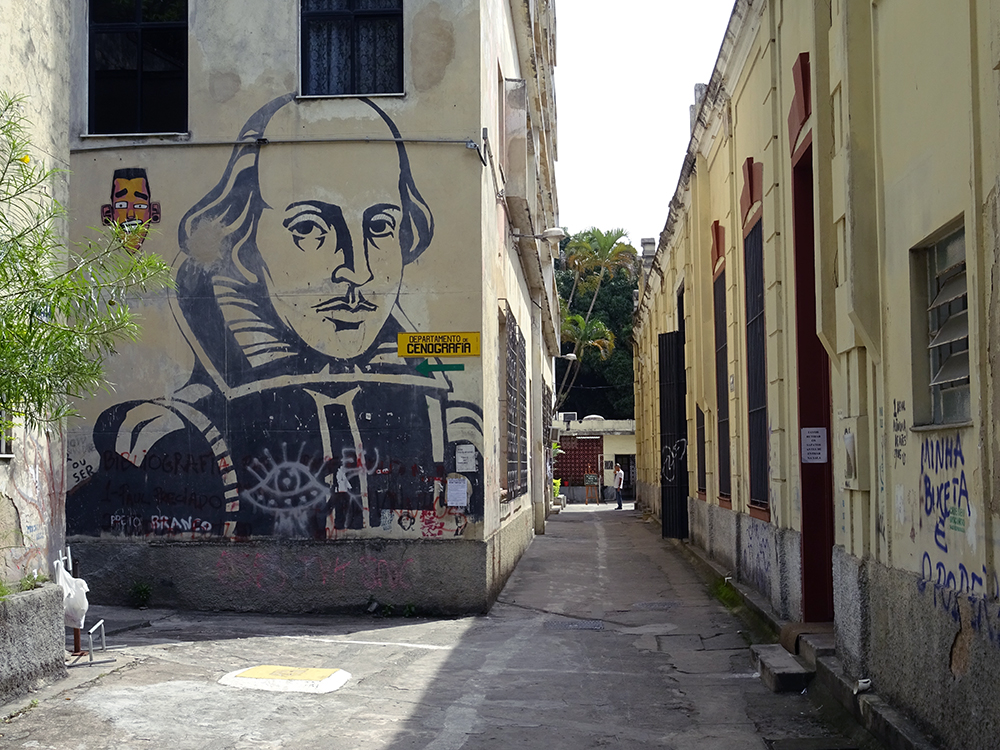
The first semester ended shortly before Christmas, although there was a strike the last three weeks for political reasons. We then had summer break until the end of February (the seasons there are the opposite of ours). Every semester closes with a final presentation week called “MAPA” in which the students present what they had learned that semester. For example, I had performances with the big band, the orchestra, etc.
From annoying and deeply sad to rejoicing to high heaven
The noise level is generally higher than in Vienna, at night as well as during the day. This was often difficult for me: because the houses and flats were so close together, I could often understand every word (to the extent that I was able to understand the dialect) and at night couldn’t get to sleep. All of the barking dogs and cats in heat that frequently wailed all night also kept me awake. On top of that, in the summer (December–February) there is also the awful heat and mosquitoes. Practising saxophone or percussion at home was often rather awkward because of the cramped living situation, and I tried to practise only at times when most people were at work.
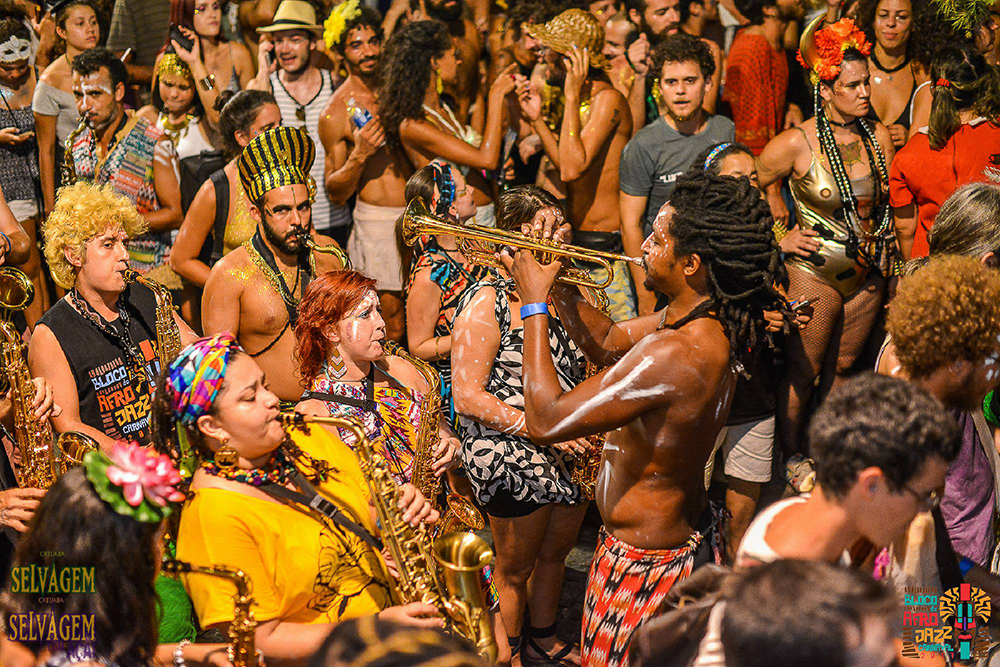
Without my wonderful family in Rio, I never would have survived my time with my foot in a cast. Yes, you read correctly. Beginning in December 2016, I had a cast on my right foot for about six weeks, and for five weeks after that I couldn’t put much weight on that foot. Physically and (almost more) emotionally wounded, I spent several weeks sitting at home, eating, watching TV, and sleeping. My family in Rio took wonderful care of me and went to great lengths to try to cheer me up. In this period, I also became a telenovela fan. Not infrequently, we had cosy, family telenovela evenings with good food and drink. I was very fortunate that I recovered from my foot injury in time for the official beginning of the carnival at the beginning of February 2017 and was virtually pain-free.
A friend from Austria visited me in February and stayed with my family as well. During carnival, I played saxophone and surdo in two “blocos” (music groups that perform primarily in the carnival season). One really has to experience carnival first-hand to fully understand how crazy things get there. On the carnival weekend, blocos play around the clock for five days; they carouse through the city, and one can simply join the procession. But the unofficial carnival with the marching blocos actually kicks off in January and ends (if it ends at all 😊) sometime in April.
2. Semester: Full throttle
In March 2017, the second semester at the UNIRIO began, which finished at the end of June 2017. I decided to take only a few classes at the university and instead concentrate on enjoying the cultural life of Rio to the fullest. I went to at least two concerts or shows nearly every week. I played myself in a band called “Biltre” and continued to rehearse with a bloco named “Bloco do Afrojazz”.
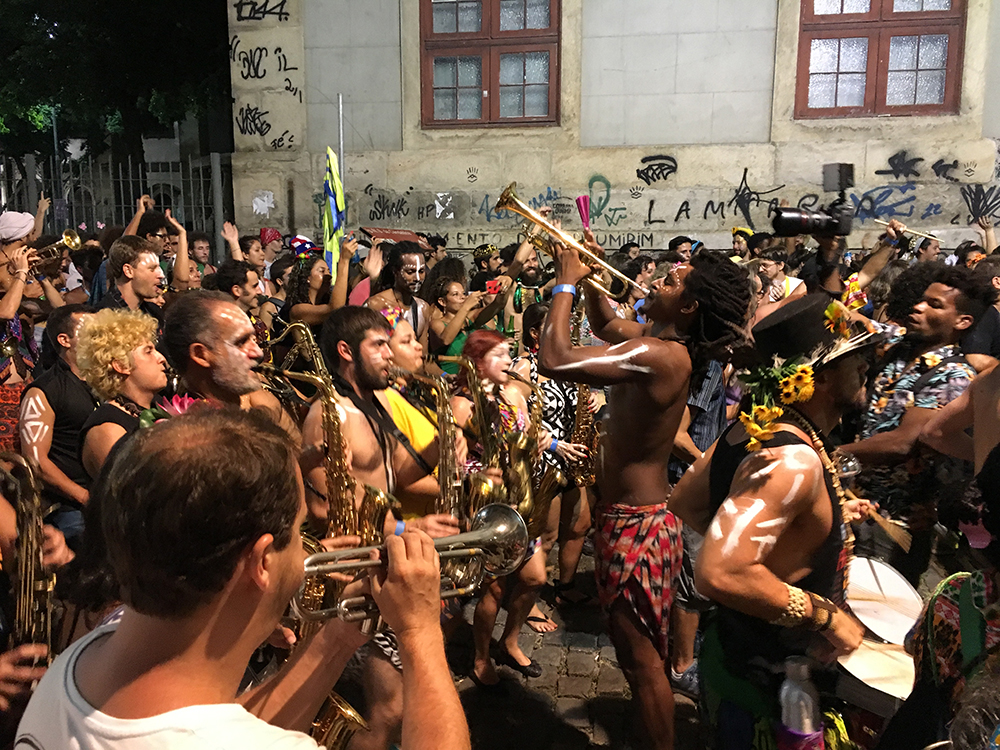
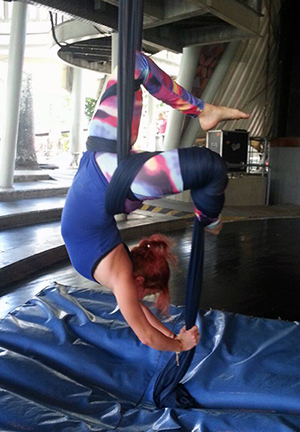
I also threw myself back into dancing. Attending several contemporary dance workshops mixed with urban dance really put me in my element. In June, I went to a weekend festival for urban dance, which hyped me up incredibly. I also attended an aerial silk class twice a week – which was completely new for me and something I always wanted to try. One could describe the classes as “physical training and adrenalin”. Unfortunately, my feet were causing me problems again, because my injury was apparently not fully healed, but I didn’t let that deter me. In May, I went to the city of Natal, in north-east Brazil, to visit a friend for ten days. I was a bit disappointed because there was little of the lively activity and music on the streets that I was used to in Rio.
Food
The food in Rio was really delicious. But because most of the dishes there are prepared with a lot of fat or sugar, and also because the eating habits are different, one gains weight very quickly (which was true in my case as well😊). Non-alcoholic beverages, so-called “refrescos”, were much too sweet for my taste. As far as the cakes and tortes are concerned, I usually had enough after one bite, as they are so filling and usually consist of much more cream than pastry. They also don’t have good dark bread like in Austria. But what I loved, for example, was the selection of various fruits, the freshly squeezed fruit juices, and “salgados” (deep-fried snacks). And not to forget the popcorn with bacon and naturally “churrasco” (grilled foods). One should never go to a barbeque hungry, because it generally lasts for hours, as a piece of meat is cut into thin slices and then passed around to all the guests. Personally, I think that this kind of barbequing is much more social and communal than when every person sits down at the table with a piece of meat on their plate.
“Tudo joia?” (How are you?), “Beleza” (Everything ok?)
These are two of many expressions that mean the same thing and are to be understood rather as rhetorical questions. With my grammatical knowledge from two Portuguese classes (one European, the other Brazilian), I could construct fairly good sentences, but one only learns the real pronunciation with the “sotaque” (slang) of Rio when one is there. When I arrived in Rio, I didn’t understand anything at first. I remember well how in the first few weeks I always fell into bed exhausted because listening was so strenuous for me. No one in my host family could really speak English, so in the first weeks we communicated largely with the help of Google Translator.
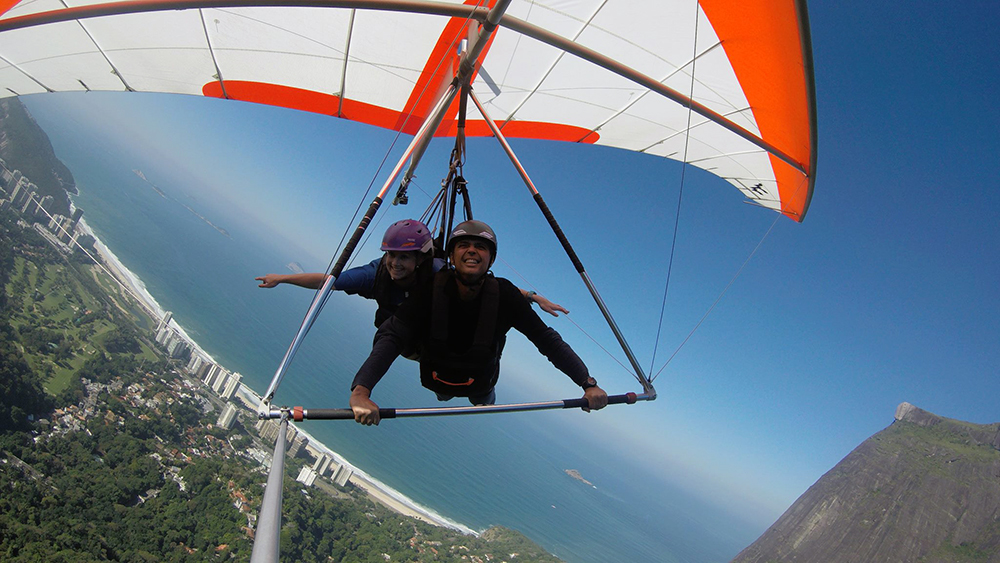
In retrospect, all of the trouble was worth it. If I had lived with someone with whom I could have always switched to English, I never would have learned the language as well as I did – grammatically not always perfect, but it is more important to be able to speak quickly. I would advise anyone to learn at least basic Portuguese before leaving on your trip, because you won’t get very far with English in daily life. Even at the university, it is not commonplace to speak English. While most of the professors could express themselves in English, there were a number of students who could not even say what their names were.
There is always something going on
The mentality of the people in Brazil in general is casual and relaxed. At the supermarket checkout, I often had the feeling that these people had all the time in the world. Generally, I think it would be good if our hectic society would learn a thing or two from the Brazilians, but the extremes to which the people in Rio took this casualness was a bit too much for me. What I really admire about the people is that despite the many political, social, and financial problems, they have an immense and contagious love of life. This love is often expressed through music as well. On nearly every street corner, one finds a musician or a group making music together. Here a samba on the street, there a forró at the bar, and someplace else a choro. There is always something happening. Often, I had the dilemma of choosing what to do, because there were frequently three different things happening at once that all interested me.
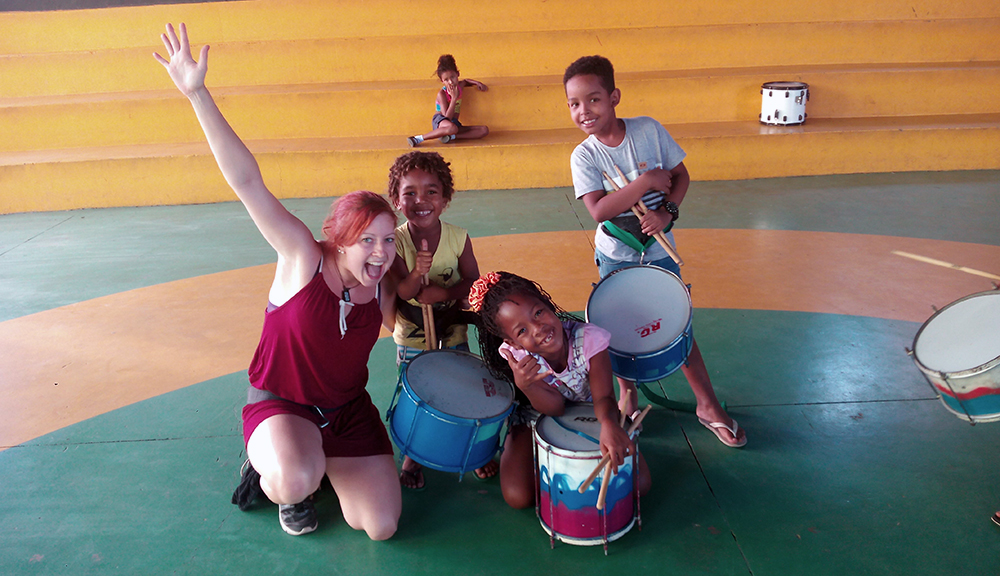
Sometimes I went to a favela to visit the “Afroreggae” organisation, which offered the children there free music and percussion classes. I also didn’t miss out on the hang gliding or the flying fox. Another highlight was the jungle tour in the Amazon region. In mid-July 2017, I had to leave Brazil and travel to another country because my student visa had expired. As soon as I re-entered the country, I received a normal tourist visa for three months. I went to Paraguay, although I must say that this country did not impress me much. The mentality of the people and the country itself are completely different.
Crime
Something that unfortunately also should be mentioned is that Rio is very dangerous. I lived in the southern zone, the wealthier part of the city. Here, one encounters many foreigners and tourists, which also attracts many bands of thieves and criminals. The public transportation connections here are very good (a positive aspect of the Olympic Games). The north is the poorer part of the city. It is much larger and there are many more favelas (slums) there. It is also striking that many more dark-skinned people live there. I was fortunate that nothing ever happened to me. It is important to follow certain rules, such as not to go to certain areas by yourself, to always take a taxi late at night, not to wear expensive jewellery, etc. Over time, you acquire a sense of what you can do and what not. But you can never know. Since I arrived in Rio when the Olympic Games were beginning, heightened security measures were in effect. When the Games were over, you quickly noticed that crime increased again. But this aspect did not diminish my love for Rio.
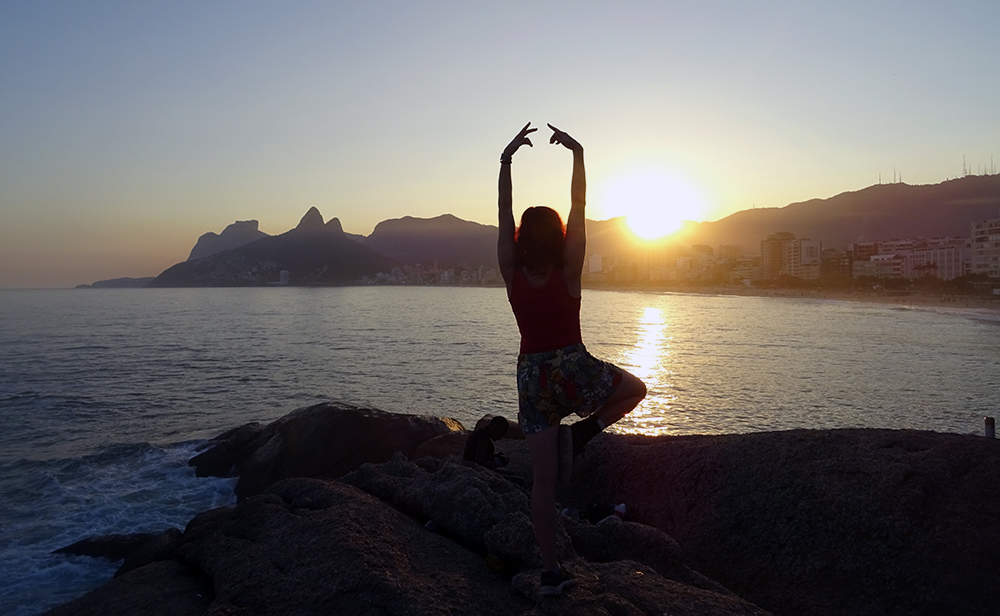
In my year abroad in Rio, I was able to gather so many wonderful experiences and meet so many warm-hearted, happy people. My time in Brazil enriched me incredibly and gave me much pleasure. I am very appreciative that I was given support and assistance by so many people and was able to make this dream come true. I’m quite certain that this was not the last time for me to visit Rio, but rather the first of many visits. Actually, I am one hundred percent certain of this. My next visit is coming up soon: for the 2018 carnival…
Are you a mdw student and interested in spending a semester or year at one of our partner institutions?

